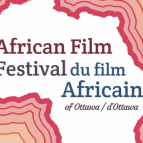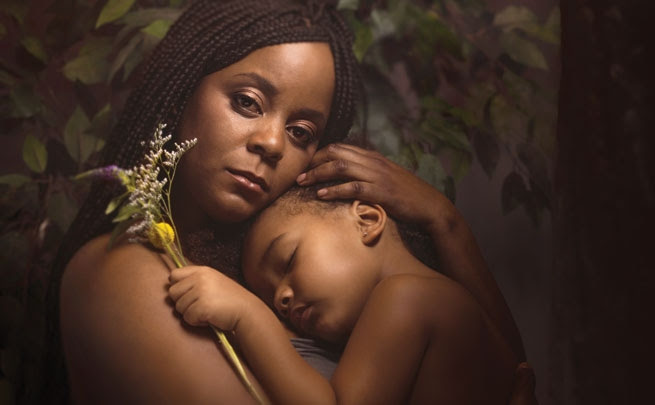
African Studies Newsletter |
Event @ Carleton: African Film Festival of Ottawa In partnership with Carleton University’s Film Studies program and Institute of African Studies and the Group of African Ambassadors and High Commissioners in Ottawa, the Canadian Film Institute is proud to present the inaugural edition of the African Film Festival of Ottawa. The cinemas of Africa have consistently delivered some of most impressive, urgent, and engaged films in contemporary world cinema. This new annual festival will showcase the best of African cinema’s diverse and extraordinary films and filmmakers. The first African Film Festival of Ottawa will reveal the richness of the rarely seen cinemas of Africa. The films selected primarily celebrate emerging voices from across the five regions of the African continent as well as its historical diaspora. They range across a number of genres from futurist to political thriller, melodrama to horror, social realist to fantasy. They are at once celebratory and critical, contemplative and reflexive, elegiac and prospective. The films have been screened, won awards, or entered for nomination at FESPACO (Pan African Film Festival of Ouagadougou), the Durban International Film Festival, the Cannes Film Festival, the Toronto International Film Festival, the American Film Institute Film Festival and the Academy Awards (Oscars), among others. The full schedule and prices can be found at the Canadian Film Institute (CFI) website. |
|||||||||||||||||||||||||||||||||||||||
Talk @ Carleton: “Integrated systems and the future of OXFAM’s work in Africa”The Institute of African Studies presents a Brownbag Seminar talk entitled “Integrated systems and the future of OXFAM’s work in Africa” with Neal Mc Carthy, OXFAM, USA |
|||||||||||||||||||||||||||||||||||||||
Event @ Carleton: First Carleton University Institute of African Studies Undergraduate Conference
The Institute of African Studies (IAS) at Carleton University is hosting its first Undergraduate research conference on 17th of October 2015. This event is organized by the Institute of African Studies Students Association (IASSA). The goal of this one-day interdisciplinary conference is to provide a platform for future researchers in the field of African Studies. Topics that will be presented on that day will include:
There will be guest-speakers, cultural components, and an environment that fosters the kind of support and encouragement that undergraduate students treasure. It will also include lunch and coffee breaks will be provided throughout the day. The conference will take place in the Carleton University’s Discover Centre on the fourth floor of the MacOdrum Library. For directions, here is a link to our campus map For general information, please email the organizing committee at: carleton.iassa@gmail.com |
|||||||||||||||||||||||||||||||||||||||
Event @ Carleton: Documentary Launch-“Mental Health on Air”
Join Farm Radio International and TeenMentalHealth.org at the launch of this documentary: Oct. 25, 6:30 p.m., Kailash Mital Theatre, Carleton University Eventbrite: http://bit.ly/ Watch the trailer: https://www.youtube.com/watch? |
|||||||||||||||||||||||||||||||||||||||
Ottawa’s 4th Annual “Felabration”:A Tribute To Fela KutiThe Ottawa International Drumming Festival in collaboration with Mercury Lounge proudly Present: When:Saturday October 10th, 2015 Where: MERCURY LOUNGE Come celebrate the music of this multi-instrumentalist musician and composer, pioneer of Afrobeat music, human rights activist, and political maverick. Afrobeat is a complex fusion of jazz, funk (especially the music of James Brown), Psychedelic Rock,and traditional West African Chants and Rhythms. Afrobeat also borrows heavily from the native “tinker Pan” African-style percussion. Event starts with an early evening of Drumming circle from 8:00pm – 11:00pm. Follwed by DJ Trevor Walker, spinning originals and remixes of Fela – With Jesse Matthews & Arien Villegas on percussion, Mario Nora Mulligan Gauvreau on trumpet, & Mikando Mathieu on trombone
|
|||||||||||||||||||||||||||||||||||||||
The Adventures of a Black Girl in Search of God’ at the National Arts CentreRooted in African storytelling traditions, ‘Adventures of a Black Girl in Search of God’ is a play about the struggles of a black woman in the proud community of Negro Creek, Ont. It’s an inspiring story of overcoming tragedy in life; a potent and profoundly emotional story of living, dying and the power of forgiveness. It’s also a story about fighting for what you believe in and preserving a town’s rich history.
The production runs in the NAC Theatre from October 21st – November 7th. You can find more info on the production here: http://nac-cna.ca/en/event/ |
|||||||||||||||||||||||||||||||||||||||
Global Centre for Pluralism / Centre mondial du pluralisme
|
|||||||||||||||||||||||||||||||||||||||
Gender Post-Doctoral Fellow – Globalized trade and investmentsThe Center for International Forestry Research (CIFOR) is a nonprofit, global research organization dedicated to advancing human well-being, environmental conservation and equity. We conduct research that enables more informed and equitable decision making about the use and management of tropical and sub-tropical forest landscapes. We help policy makers and practitioners shape effective policy, improve the management of tropical forests and address the needs and perspectives of people who depend on forests for their livelihoods. Our multidisciplinary approach considers the underlying drivers of deforestation and degradation which often lie outside the forestry sector: forces such as agriculture, infrastructure development, trade and investment policies and law enforcement.
OverviewCIFOR is seeking a qualified, committed and collaborative post-doctoral fellow to undertake research on gender and agribusiness expansion in tropical countries. The successful candidate will document the mediating factors that affect rural women and men in the process of agribusiness expansion, and assess how different outcomes can be realized under smallholder-inclusive investment models. The post-doctoral fellow will be a part of the CGIAR Research Consortium on Forest, Trees and Agroforestry (CRP FTA) Flagship 5 on “Global Trade and Investments”, and work closely with researchers at CRP Policy Institutions and Markets (PIM) and CRP Water Land and Ecosystems (WLE), focusing on the gender differentiated impacts of large-scale land and water acquisition.
Duties and responsibilities• Carrying out a review of literature on gender and agribusiness expansion; assessing whether and how different policy responses (such as responsible investments policies, regulatory safeguards and codes of conduct – among others) take into account gender issues linked to commercial commodity investments Education, knowledge and experience• A PhD in a gender related issues in any of the following disciplines: development studies, economics, sociology, anthropology and other relevant disciplines. A solid foundation in political economy or political ecology Personal Attributes and Competencies• Excellent facilitation skills Terms and Conditions• This is a Post-Doctoral Fellow position. CIFOR offers competitive remuneration, commensurate with skills and experience Application processThe application deadline is 30 September 2015. |
|||||||||||||||||||||||||||||||||||||||
EXTENDED DEADLINE: 11th October for African Borderlands Research Network cfp WorkshopCall for papers:ABORNE Workshop, April 14-16, 2016, Beuggen (Germany) The African Borderlands Research Network invites contributions to a conference in Beug-gen, Germany (close to Basel, Switzerland). The Beuggen conference will analyse changes in African borderlands and in African Border-land Studies in the nine years since ABORNE’s inception. We invite contributions that fall under one of the following three themes: 1. New development in African borderlands and in African Borderlands Studies: what has changed since ABORNE’s founding conference in 2007? One of the premises in founding ABORNE was that many borderlands are dynamic places in which global changes often become visible earlier than elsewhere. A large number of case studies have indeed shown that borderlands can be seen as observatories of social change. Due to their special dynamism and the economic and political chances they offer, border-lands make changes that affect the entire continent or the globe particularly visible. In this section, we ask for contributions that analyse trends in such changes over the last ten years. Papers can start from case studies, but should clearly be conceptual in nature. They should address one of the following two subthemes: In the first sub-theme, we look for papers on specific real-world changes visible in border-lands. Papers should address how – to name but a few examples – transport corridors, transfrontier parks, regional integration efforts or the commodities boom have affected Af-rican borderlands, and should analyse trends that emerge if we take a comparative view of the last ten years. If we postulate that social change becomes more easily visible in borderlands, we assume that borderlands, through all these changes, keep up distinct traits that enable them to ab-sorb every new wave of social change. Contributions to the second sub-theme should ask whether the social dynamics at play in borderlands indeed remain largely stable. Are bor-derlands indeed, in this sense, resilient to change – ever-adapting to new situations in a way that leaves the fundamental dynamism of adaptation intact? Or do the changes described in the first sub-theme affect the very nature of borderlands and their capacity to remain la-boratories of social change? In other words: will borderlands remain recognisable as bor-derlands in the sense that we have become familiar with over the last decade, or might re-gional integration efforts, transport corridors or transparency initiatives make them disap-pear? 2. Is there a theory of borderlands? The section is closely linked to the first one, but takes an even broader view. Many scholars agree that we recognise a ‘typical’ borderland if we see it. Yet what exactly is it that we see as common to borderlands? What makes the widely differing case studies comparable? What do we expect to find in a borderland, and what would surprise us? We invite scholars to start their presentation from these questions. Ideally, each presenta-tion should centre around one particular trait of (African) borderlands. The choice is very open – it can be an institution like cross-border chieftainship, regional integration organisa-tions or trade networks, a social practice like corruption or smuggling, a technology like the border beacon or one-stop border posts. Starting from an analysis of this feature, the pres-entations should use differences and commonalities between different border regions as inroads to theorising borderlands. Ultimately, presentations in this section should ask what borderlands are and why, and should contribute to a general theory of African borderlands and borderlands in general. We look for bold, but closely argued papers synthesizing discussions the network has had over the last eight years. 3. Reports from the field (and the archive): new research, fresh case studies ABORNE conferences have always been a place to discuss new research and fresh results. We invite both younger and older scholars to present papers on things they find interesting, intriguing, puzzling or new – and to tell us why they think the developments they describe are relevant for borderland studies. Papers in this section might just as well build on in-depth research as on a sidetrack one never has had the time to properly follow. They can be speculative, but should not be boring. Timeline and Organisation: Extended deadline for paper abstracts is 11th October 2015. Please send a paper title, a clear and concise abstract of about 250 words and a short CV to gregor.dobler@ethno.uni- |
|||||||||||||||||||||||||||||||||||||||
Funded PhD studentship on social protection in Southern AfricaFunded ESRC linked project PhD studentship available at the Applications are invited for a full-time, three-year PhD The studentship is supervised by Dr Lorraine van Blerk More information is available here: Informal enquires can be made to Dr. Lorraine van Blerk: |
|||||||||||||||||||||||||||||||||||||||
IAS News: Application Form for African Studies Abroad course now availableThe application form is now on-line for AFRI 3100/5100, African Studies Abroad course, being held in Malawi in May 2016 with Prof. Paul Mkandawire on the topic of “Unequal Landscapes of Global Health.” Please visit the African Studies Abroad course page to access the Application form (which is due on October 30th, 2015). Prof. Mkandawire’s powerpoint presentation from the Information Session is also available on this page. |
|||||||||||||||||||||||||||||||||||||||

|
African Studies Newsletter is produced by the Subscription preferences can be changed below. |
|



